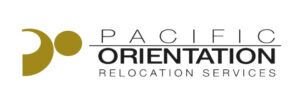If you are going through a legal or immigration application, you may need a document translated if it is not in the language required by the requesting authority. Whether you’re looking to get a document translated from English to Thai, or vice versa, there are certified translation services in Bangkok to help you meet these requirements.
However, legal and international standards require a “certified translation,” so you’ll need a reliable translator with the right credentials to ensure success. Continue reading to find out more about the various translation services in Thailand, when you need to get a document translated, and how to get certified translations of your important documents.
What Documents Need Translating in Thailand?
Some organizations may reject a document you submit to them if it’s not in the language they require. This is common if you need to submit a foreign document to a Thai government agency, or the other way around. Perhaps you are applying for a visa, registering your marriage, or trying to enforce a legal document in a foreign country; in these cases, the documents you submit to the requesting authority must be translated first.
The most common documents that foreigners in Thailand need translating include:
- Personal identification documents such as passports and ID cards
- Proof of relationship documents such as birth certificates and marriage certificates
- Death certificates
- Business-related documents such as shareholder agreements, company affidavits, business objective documents, contracts, and US-Thai Treaty of Amity documents
- Divorce certificates and prenuptial agreements
- Legal documentation such as court documents
- Financial documents such as bank statements
- Documents related to property such as title deeds
- Medical records and documentation
- Last Will and Testament
After these documents are translated, they usually must then be legalized by the Thai Ministry of Foreign Affairs (MFA). More on that later.
What is a “Certified Translation” in Thailand?
This is a type of document that is accompanied by the stamp and signature of the translator as proof that they have translated it into the requested language to the best of their ability. Despite this, a certified translation alone does not mean that the translated document is accurate or up to the established standards of the MFA, and it may still be rejected.
If you plan on using the document in Thailand or abroad, you need to find a trustworthy and qualified translator who can provide a translation that meets local and international legal standards.
How to Find a Reliable Certified Translator in Thailand
Because there is no universal license or certification that allows a person to provide a certified translation, you need to identify the qualifications of the translator to ensure the MFA or other requesting authority does not reject it.
There are two types of qualifications you should keep an eye out for to ensure your document is not being translated by someone who is inexperienced or unscrupulous.
These qualifications include:
- The translator has been enlisted by the MFA. This means the MFA entrusts them to perform translations on official documentation and that they are familiar with the guidelines established by the MFA and how to meet them.
- The translator holds a certification that shows they are fully trained and able to provide high-quality and accurate translations. An example of one is the Southeast Asian Association of Professional Translators and Interpreters (SEAProTI).
It is ideal to choose a translator with both qualifications as it shows that they are capable of providing an accurate and professional translation, and ensuring it meets the demands of the MFA.
What to Do With Your Documents After They Have Been Translated
Once you have gotten a document translated, you may need to get it legalized by the Thai Ministry of Foreign Affairs (MFA) or a foreign embassy for official use both overseas and in Thailand. However, the translated copy must first be notarized prior to undergoing legalization, otherwise the MFA will reject your request.
To do this, you’ll need to locate a Notarial Services Attorney (NSA) who can be found at various law firms in Thailand, as there are no official Thai notaries public. As licensed attorneys authorized by the government to translate legal and immigration documents, they have the skill set to notarize translated documents, ensuring they align well with established legal guidelines in Thailand.
Thai Documents Translated to English for Use Abroad
English is accepted as a valid language in most countries, meaning that you may not have to get it translated into that country’s native language before submitting it. Examples can be seen in countries such as the Schengen states, which will accept documents that have been translated into English. As Thai isn’t used in any countries outside of Thailand, you will need to get a Thai document translated.
Once you have a document translated from Thai to English and you have gotten it notarized, you need to get it legalized to be used overseas. You can do this by submitting it to the MFA’s legalization office to begin the process. The MFA will assess the document, comparing it to the original and making sure the translation is accurate. If deemed acceptable by their standards, they will legalize the document and provide their stamp on it.
After this, you need to submit your document to your home country’s embassy where they will confirm that the Thai government has legalized the translation. You can now submit it to the foreign organization that requested it or use it overseas.
English Documents Translated to Thai for Use in Thailand
Because English is classified as a secondary language in Thailand and isn’t widely spoken in the country, many local organizations and government agencies will only accept documents that are in Thai. In such situations, you will need to get your document translated into Thai before you can submit it.
Before translating it, you will need to get the original English document legalized overseas at a Thai Embassy or Royal Thai Consulate that’s located in your home country. Once this is done, you can get the document translated into Thai. You then need to bring the translated document to the MFA in Thailand and submit it to the consular department so it can be legalized.
Swift, Accurate, and Reliable English and Thai Translation Services
To get an accurate translation quickly and conveniently, partner with Siam Legal’s expert translators. As a full-service law firm and visa consultancy with more than 20 years of experience in supporting foreigners in meeting their legal and immigration requirements, we provide professional translation services to help you obtain a translated copy that meets MFA requirements.
Our level 3 translator and interpreter is an Enlisted Document Translator for the MFA and is certified by the Southeast Asian Association of Professional Translators and Interpreters (SEAProTI). With these qualifications, our translator is trusted by the Thai government to provide high-quality translations for any documents that you need to submit. To ensure the translation is suitable for official use, we also provide notarization and legalization services so you can satisfy your needs all in one go.
Contact Siam Legal today and schedule an appointment with our translator to obtain a certified translation that is truthful, precise, and fulfills all guidelines established by the MFA.
CONTACT SIAM LEGAL
 CALLCall +66 2 254 8900 |  CHATChat with our representative |
English and Thai Translation FAQ
How Long Does it Take to Get a Document Translated in Thailand?
The timeline for receiving a translated copy of a document is between 1 to 3 days on average, but it may vary depending on the length and complexity of the document. For instance, getting an affidavit translated takes longer than an ID card. In addition to this, having to get the document notarized and legalized on top of that can prolong the process.
Are There Any Notaries Public in Thailand?
There are no notaries public in Thailand because it is not a party to the Hague Convention on Legalization of Foreign Public Documents. As a result, the only way to notarize a translation copy of a document is to consult an NSA at one of Thailand’s law firms.
Do You Legalize Certified Translations of Documents?
While we have legalization services on offer, only the MFA specializes in legalizing documents for official use. However, we can review the certified translation and prepare the submission of it to the MFA on your behalf after we’ve notarized it, saving you a trip.
Is it Possible to Get a Document Translated into a Different Language While in Thailand?
Most Thailand-based translators are qualified to translate documents from Thai to English, or from English to Thai. However, if you want to get a document translated into a different language such as French, Spanish, and many more, you will need to consult the translator beforehand. Some translators in Thailand may provide services in other languages.
Do I Need to Get a Certified Translation for Unofficial Uses?
Even if you’re not submitting any legal or immigration applications or applying through a government agency, you may be required to provide certified translations, particularly for personal, business, or academic purposes. Examples of documents that must be accompanied by a certified translation include academic papers, marketing collaterals, certain types of statements, and more. However, if the document is intended for unofficial uses, you generally do not need to get it legalized by the MFA.





































